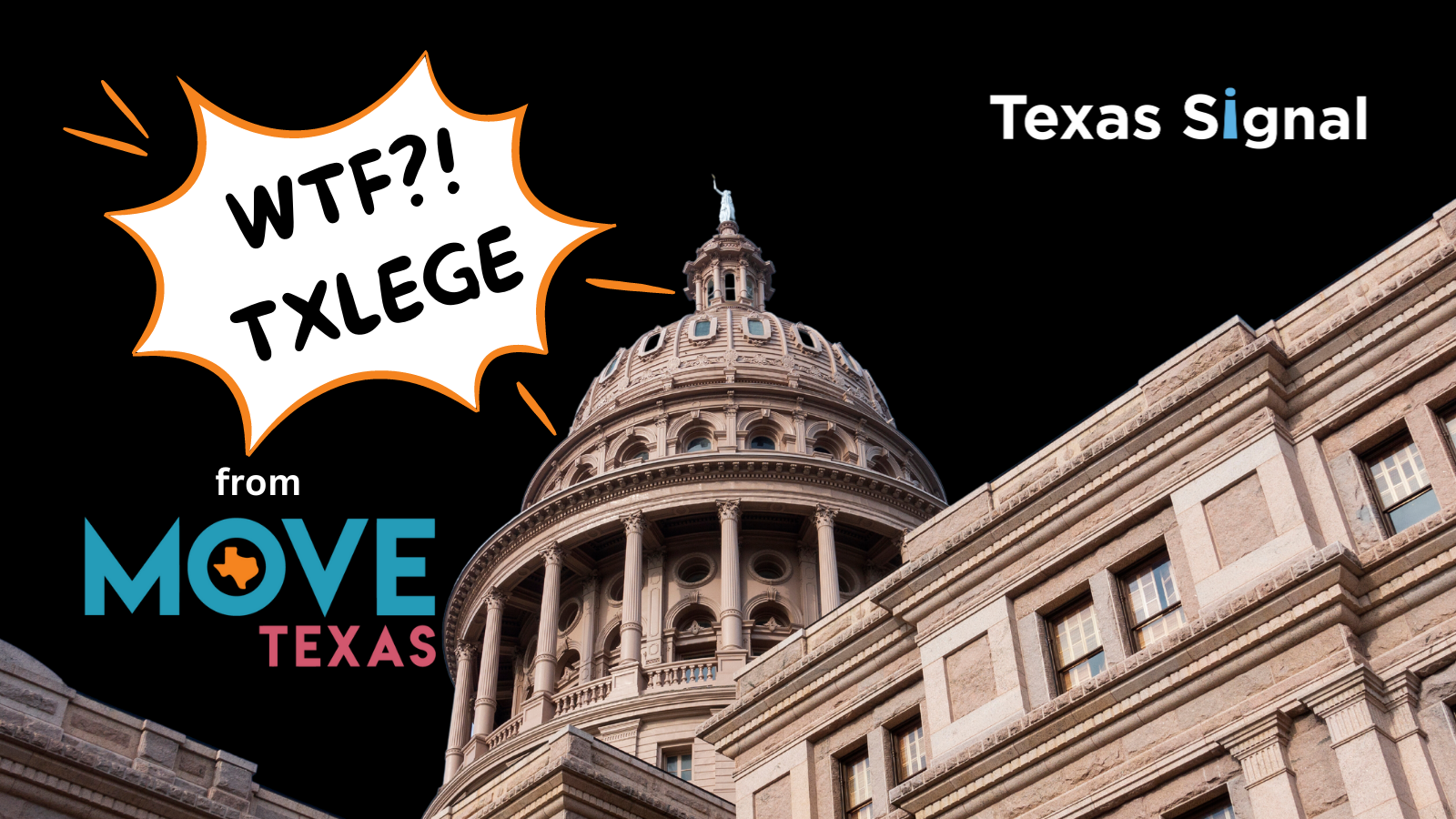Over the next four weeks we are partnering with MOVE Texas for a series explaining the Texas Legislature. This is the first installment of #WTFTXLege. Tune in every #WTFWednesday for more about the legislature, how it impacts the state, and what young voters should know.
The Texas Legislature is a public institution that has been held captive by mystery and ambiguity throughout the duration of our entire lives.
Most individuals will go through their lives without ever participating in a hearing, tuning into a floor debate, or communicating directly with their legislators. This is especially true for young people, who are often neglected by politicians and not directly engaged into the legislative process.
MOVE Texas was created as the counterpoint to this fact. We do not believe that our legislative process should be shut out from young people, which is why we do the work that we’re known for: organizing college chapters to empower students as leaders in their communities, registering thousands of young people and getting them involved, and hosting rallies and town halls for young people to give them opportunities to be seen and heard.
Still, the legislative process is intentionally designed to be confusing and daunting. We at MOVE Texas realized that for young people to be effective change makers, we need to break things down and explain not just the “what” of the Legislature, but the “why.”
Why is Texas so rich but we can’t fund our schools? Why can’t we keep the lights on? Why is voting so damn hard?
That is why we are rolling out this series, dubbed “WTFTXLege,” where our team demystifies the system and breaks down the big issues into what’s happening, why it’s happening, and what should be done to help young people.
And there is a lot to break down.
Long standing policies have become archaic and dysfunctional. For example, the legislature has held hostage the state’s Rainy Day Fund fund, aka the “Economic Stabilization Fund,” which is worth $12 billion, more than twice the total annual fiscal budget of the City of Houston.It’s essentially a savings account that the state can use to meet public needs, especially in times of emergency. Besides natural disaster response, the original intent of the Rainy Day fund was to prevent mass cuts to schools, health care, higher education, and other services that rely on state funding. Instead, extremists at the Texas Legislature choose to focus on attacking reproductive freedoms, our freedom to vote, and our right to clean air and water – and the dysfunction reaches far past our policy and goes into the entire process.
The process is confusing, with the entire business of our state – a group of 30 million people speaking over 160 languages total in two different time zones – expected to be decided in just under 5 months. Texans travel far and wide to testify against unpopular, hastily written legislation. Members of the public arrive at 8 AM in order to be among the first to register to provide testimony, and still they find themselves waiting into the dead of night to provide their thoughts on proposed legislation. And unfortunately, we’ve been doing this long enough that we don’t expect things to change.
The good news is that MOVE Texas is positioned to meet this political moment. Young people are the movement, and we refuse to sit idly by as our future is jeopardized by zealots who find comfort in the confusion. We are steadfast in our commitment to fighting measures that strip freedoms from Texans.
In spite of these challenges, every legislative session is also an opportunity to advocate for and center the real concerns and needs of Texas’ communities. Our legislative agenda at MOVE Texas is simple: to Get Sh*t Done for young people. Climate action is more urgent than ever before; public safety and reforms which address mass incarceration remain important; a renewed struggle for expanded voting rights and protections for our democracy. And for all of these issues, young people make up among the largest stakeholders.
If the institution were to fully be run by the people, it would look a lot more like what MOVE Texas is fighting for – representatives from our communities, an accessible and engaging process, and young people’s demands being prioritized for our state.
Stephanie Gomez is the Political Director of MOVE Texas and Alan De Leon is the Political Advocacy Manager of MOVE Texas




